MercoPress. South Atlantic News Agency
Tag: BRICS
-
Tuesday, September 9th 2025 - 10:02 UTC
Lula da Silva hosts virtual BRICS Summit
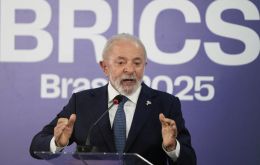
High-ranking leaders of BRICS countries discussed on Monday morning how to expand trade mechanisms between the bloc's nations during a multiple conference hosted by Brazilian President Luiz Inácio Lula da Silva in a move to counter Washington's tariff increase.
-
Saturday, July 12th 2025 - 10:21 UTC
Brazil resuming local production of insulin after 20 years
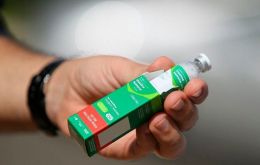
Brazil's Health Ministry took delivery on Friday of the first batch of insulin produced through the Partnerships for Productive Development (PDP) program. The initiative is part of the National Strategy for the Development of the Health Economic-Industrial Complex and aims to resume manufacturing the drug entirely in the country.
-
Thursday, July 10th 2025 - 09:07 UTC
Orsi's participation at BRICS Summit a success

Uruguayan President Yamandú Orsi returned Wednesday from the BRICS summit in Rio de Janeiro, achieving significant diplomatic successes. Notably, South African President Cyril Ramaphosa extended a formal invitation for Uruguay to attend the upcoming G-20 summit. Additionally, Indian Prime Minister Narendra Modi confirmed plans to establish an Indian embassy in Uruguay.
-
Monday, July 7th 2025 - 09:30 UTC
IMF and WB “a reversed Marshall Plan” says Lula
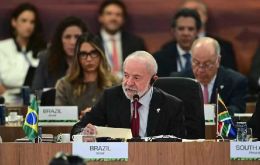
Brazilian President Luiz Inácio Lula da Silva Sunday criticized the role of the International Monetary Fund (IMF) and the World Bank (WB) because they represent “a reverse Marshall Plan, in which emerging and developing economies finance the more developed world.”
-
Monday, June 30th 2025 - 18:27 UTC
Orsi speaks wonders of 2030 Agenda in Seville

Speaking at the 4th International Conference on Financing for Development Monday in Seville, Spain, Uruguayan President Yamadú Orsi defended multilateralism and the 2030 Agenda as key to addressing global issues like poverty, hunger, and pollution.
-
Friday, June 27th 2025 - 10:12 UTC
BRICS scientists want climate network created
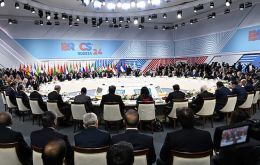
A forum of Academies of Science of the BRICS bloc in Rio de Janeiro issued a declaration this week proposing the creation of a network of member countries to implement climate solutions, focusing on energy transition technologies and the development of joint artificial intelligence programs.
-
Tuesday, June 24th 2025 - 10:19 UTC
July 7 becomes holiday in Rio due to BRICS event

The city of Rio de Janeiro has declared July 7 (Monday) a municipal holiday due to the BRICS Summit, which will host leaders from over 20 countries. Additionally, July 4 (Friday) has been marked as an optional workday for public offices because of related events. Although the summit formally begins on July 6, key encounters among central bank heads and finance ministers will already be taking place on July 4 and 5.
-
Wednesday, June 18th 2025 - 08:42 UTC
Brazil sees opportunity in mRNA vaccine development
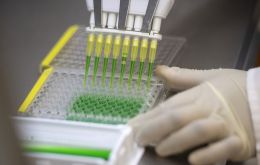
Brazil's Alexandre Padilha admitted Tuesday at the at the 15th BRICS Health Ministers' Meeting in Brasilia that his country was seeking to become a global leader in messenger RNA (mRNA) vaccine production, leveraging partnerships with national institutions like the Oswaldo Cruz Foundation (Fiocruz) and the Sao Paulo-based Butantan Institute. Padilha also reckoned other BRICS countries such as China would be engaged in the initiative.
-
Wednesday, April 30th 2025 - 10:59 UTC
No full consensus at BRICS FMs gathering in Rio

The BRICS foreign ministers' meeting in Rio de Janeiro Monday and Tuesday concluded without a joint statement, as discussions over United Nations Security Council reform failed to reach consensus. Although Brazil's Foreign Minister Mauro Vieira stressed that the differences were not outright disagreements, Egypt and Ethiopia opposed the proposal to grant permanent seats to developing nations such as Brazil and India.
-
Thursday, April 3rd 2025 - 19:37 UTC
Brazil's Silva highlights BRICS' potential for just ecological transition

Brazil's Environment and Climate Change Minister Marina Silva Thursday highlighted the BRICS group's potential to lead a just global ecological transition. She made those remarks during the bloc's 11th ministerial meeting in this regard, where issues like desertification, ecosystem preservation, plastic pollution, and climate action aligned with the UN's Agenda 2030 were discussed.
